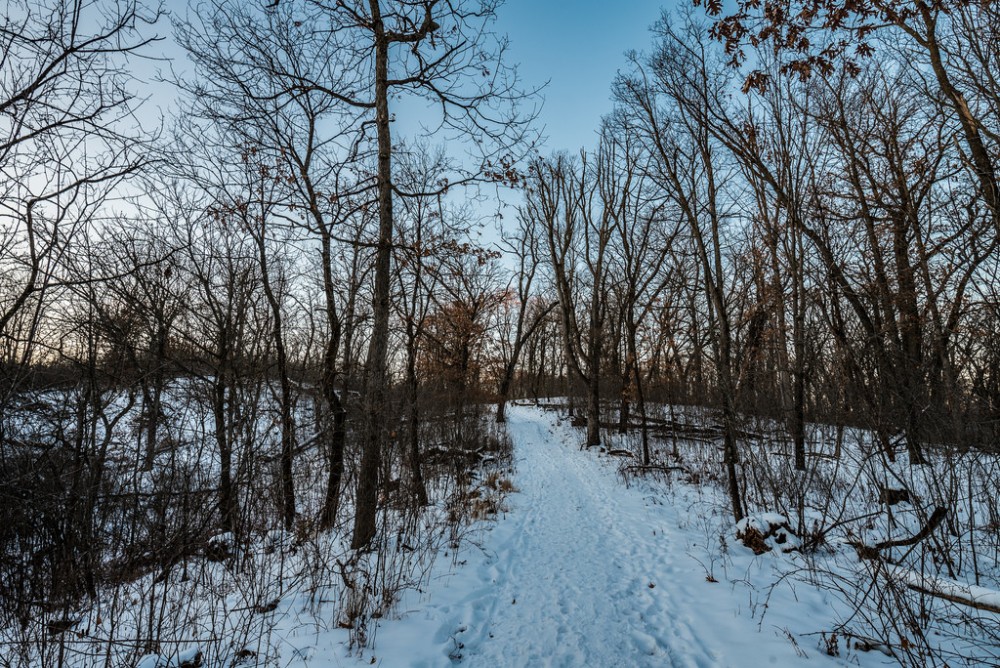The time my psychiatrist sent me on retreat
He leaned back and sighed. “I think what you need is a spiritual experience.”
My psychiatrist is a soft-spoken Syrian man who travels back to his homeland every few months to work on developing treatments for children traumatized by war. Sometimes I use this as a weapon against myself. Their suffering is significant and real and worthy of care. Mine is first-world bellyaching, more midlife crisis than dark night of the soul. I have no right to be miserable.
My psychiatrist doesn’t see it this way. His well of empathy for me seems endless. Lately, though, I’ve felt frustration crop up around the edges of his kindness. He is not frustrated with me so much as with our inability to find a way to lift me out of my depression. During my last appointment I was on a tear, convinced it was time to evict the antidepressants from my cabinet and bloodstream. We’d doubled my dose last summer after a particularly bad week, but the pills weren’t working. I was still drenched in sorrow.
Read our latest issue or browse back issues.
To my surprise, my psychiatrist shrugged and agreed: the pills were not working for me. He admitted, rather sadly, that drugs are the only tool he has. Sometimes they work miracles. Sometimes they don’t.
Then he leaned back in his black leather chair and sighed. “I think what you need is a spiritual experience.”
As a pastor, I’ve encouraged many parishioners to seek mental health care. It never dawned on me that it could go the other way—that a psychiatrist could realize he was out of his depth with the woman weeping in his office, recognizing that her soul sickness hadn’t been covered in his medical training and that she needed to go elsewhere to be healed.
A spiritual experience isn’t easily manufactured. My faith has never been especially experiential, though not for lack of longing. I’ve rarely felt the presence of God, a fact that used to trouble me until I realized that my perseverance in the face of this lacuna was itself a form of faithfulness. I keep showing up despite my doubts, keep praying despite my lingering sensation that my prayers are whispered into an empty abyss. I’ve come to accept this, mostly. But now, having been prescribed a spiritual experience, the inadequacy of my faith felt damning.
The stakes were high enough to move me to extreme action. I signed up for a daylong silent retreat, even though the thought of being alone with myself made me uneasy. The night before the retreat, I berated myself for wasting both time and money. Why was I paying to spend the day in silence? Couldn’t I just do the very same thing in town, for free? And why had I picked the Saturday option, the one day of the week when no one in my family has to go to work or school? Not that I’d been especially present at home lately. Even when I was there I wasn’t there, my mind so preoccupied by angst.
I woke up early the morning of the retreat and packed a bag. I brought a journal and my Bible, even though it’s been years since I’ve recorded my thoughts in longhand or read scripture from anything but my laptop. They seemed like the things one packs for a silent retreat, and I was trying to play the part. A snowstorm was in full swing, so I silenced the radio and gripped the steering wheel for an anxious hour of driving. Pulling into the retreat center, which is nestled in a wooded campus adjacent to a lake, I realized two things: I was barely breathing, and the snow was breathtakingly beautiful.
I arrived at the opening meeting late and snuck into the back of the room. The retreat leader was explaining the rhythm of the day to the 40 or so people who were gathered. I looked around and had a surprisingly pleasant thought: I don’t have to speak to any of these people. No small talk. No awkward silences. No trying to make anyone laugh. No nodding sympathetically to demonstrate my active listening skills. Just a bunch of strangers being quiet, together. We were told we could opt to break our silence over the lunch hour, and my purportedly extroverted self recoiled.
I don’t remember much else of what was said during that opening circle time; I was so eager to enter into silence that I didn’t have much patience for reflections about silence. I did, however, cling to this benediction: “God is here, and you are loved.”
God is here, and I am loved. I set off toward the lake, intending to spend the morning walking the three-mile path that loops around the water and through the woods. The snow was coming down in thick flakes. I had planned to leave my phone in my car, as it’s a nonstop source of stress and distraction. But I wanted to take pictures. I hesitated as I framed the first shot, a selfie by the frozen lake. (If a woman goes on a silent retreat but doesn’t Instagram it, did it really happen?) I continued to meander along the path, taking more pictures along the way. Each one looked as though I’d applied a black-and-white filter; the world itself was rendered in grayscale as the snow continued to fall, snow on snow on snow.
I felt happy as I walked. It had been a long time since I’d allowed myself to feel happy. This struck me as a small epiphany: maybe I had, in fact, been sabotaging myself. I was holding myself hostage, even as I’d believed it was the depression that had me in its icy grip. I didn’t trust happiness. The memory of the bottom dropping out from underneath me was too terrifying. I had to be ready for the next time. I couldn’t be distracted by anything so fleeting as joy.
I trudged along in companionable silence, alone but for the Holy Spirit. God is here, and I am loved. I’d been walking along for an hour when I saw it, perched on a limb that didn’t seem large enough to support the weight of such glory: an enormous bald eagle, his white feathers stark against the white sky. The branch hung out over the lake, and I marveled as much at the reflection of the eagle as I did at the eagle itself.
I took pictures. I wanted the eagle to mean something but I didn’t know what. I’m not sure I’m the kind of person who believes God uses eagles to send messages to depressed women on silent retreats. I broke my silence to tell a few people walking in the opposite direction to look for him by the bridge. It didn’t seem right to keep him to myself.
After lunch I met with one of the retreat leaders for spiritual direction. I regretted signing up for the session; I wanted to retrace my steps around the lake instead. I wasn’t ready to talk.
But once I started I could barely stop the words. Or the tears; the narrative required nearly as many teardrops as adjectives. I used up all the tissues in the room and wiped my nose on my sleeve. The spiritual director was a woman of few words but she chose them carefully, sending me on my way with another heartening promise: that all this sadness may be harrowing, but it was harrowing in me a deeper capacity for joy. She gave me a Puritan prayer that I’ve kept in my pocket since:
Let me learn by paradox
that the way down is the way up,
that to be low is to be high,
that the broken heart is the healed heart.
Something shifted in me that day. I drove home in a state of bewilderment. Somehow, by the wisdom of my psychiatrist and the provision of God, I’d conjured up my spiritual experience. I am easing my way out of the clutches of misery. God is here, and I am loved.
A version of this article appears in the print edition under the title “Spiritual referral.”







